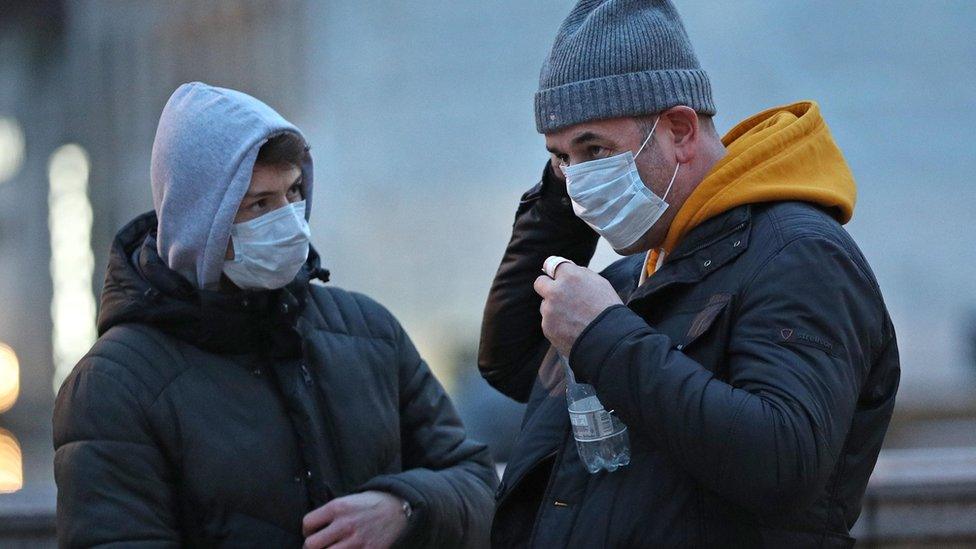Coronavirus: UK moving towards 'delay' phase of virus plan as cases hit 115
- Published
Chief medical adviser Professor Chris Whitty: "Community transmission highly likely"
UK health officials are moving towards the second phase of their response to the coronavirus outbreak.
It comes as the number of UK people diagnosed with the virus reached 115, a rise of 30 since Wednesday.
The latest government figures released on Thursday, external showed that of the total number of cases, 25 are in London.
Earlier, the country's chief medical adviser Prof Chris Whitty said the next phase - "delay" - will see more action to slow the spread of the virus.
He told MPs it was "highly likely" some people now being infected in the UK have no connection to overseas cases.
The PM's official spokesman also said it is "now highly likely that the virus is going to spread in a significant way" and officials were ramping up work to prepare for the next "delay" phase.
According to the latest figures, Prof Chris Whitty, said 25 of the newly diagnosed patients are from England.
Officials do not know how eight of the new cases contracted the virus - taking the number of cases like this, where patients had not recently been abroad, to 13.
Of the total patients in England, there are:
25 in London
17 in the north-west
17 in the south-east
15 in the south-west
10 in the north-east and Yorkshire
Nine in the Midlands
Eight in the east of England
Four yet to be determined
On Thursday, three new cases were confirmed in Scotland as well as one in Wales. Northern Ireland has three cases.
'Strike a balance'
Speaking to MPs on the health and social care committee, Prof Whitty said the country was now "mainly" in the delay phase of the government's four-part plan, external to tackle the virus, but was still following aspects of the first phase.
Downing Street said it would formally announce when it switches from the contain to delay stage of taking on the virus - and that this has not yet happened.
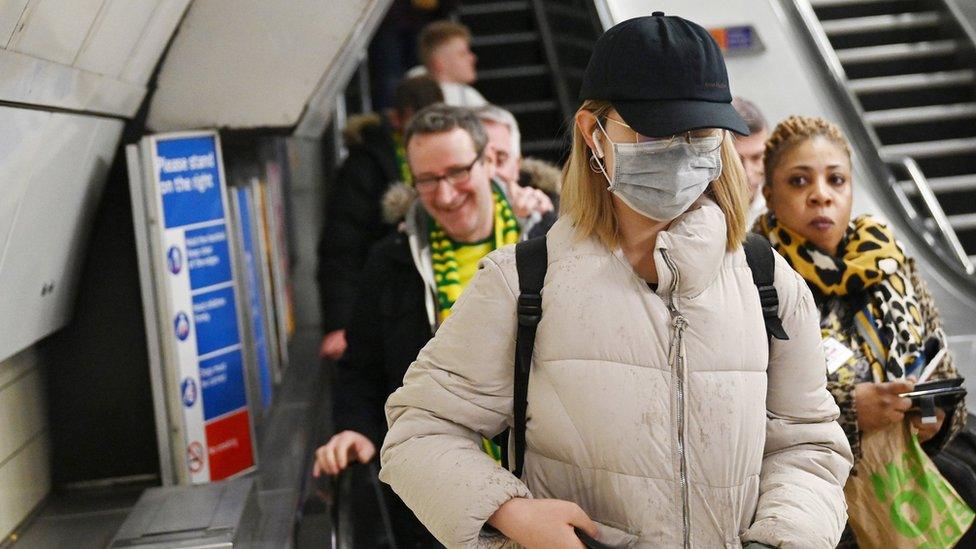
Some people are wearing masks, although it is not official government advice
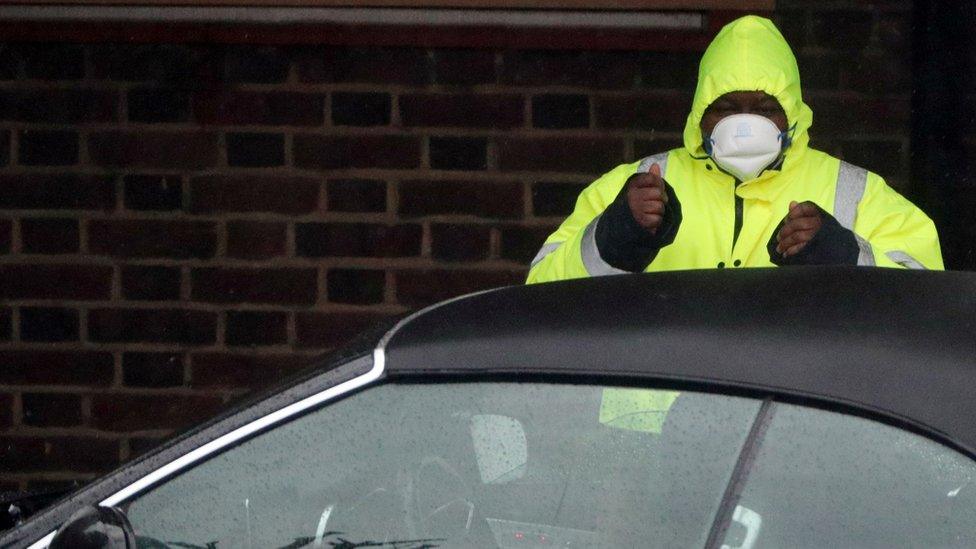
At a medical centre in London, patients can be tested at a drive-through
The government is still deciding what measures will be taken in the delay phase, but has previously said they could include banning big events, closing schools, encouraging people to work from home and discouraging the use of public transport.
But Prime Minister Boris Johnson said the government's scientific advisory group for emergencies (Sage) had told him that closing schools and stopping big gatherings "don't work as well perhaps as people think in stopping the spread".
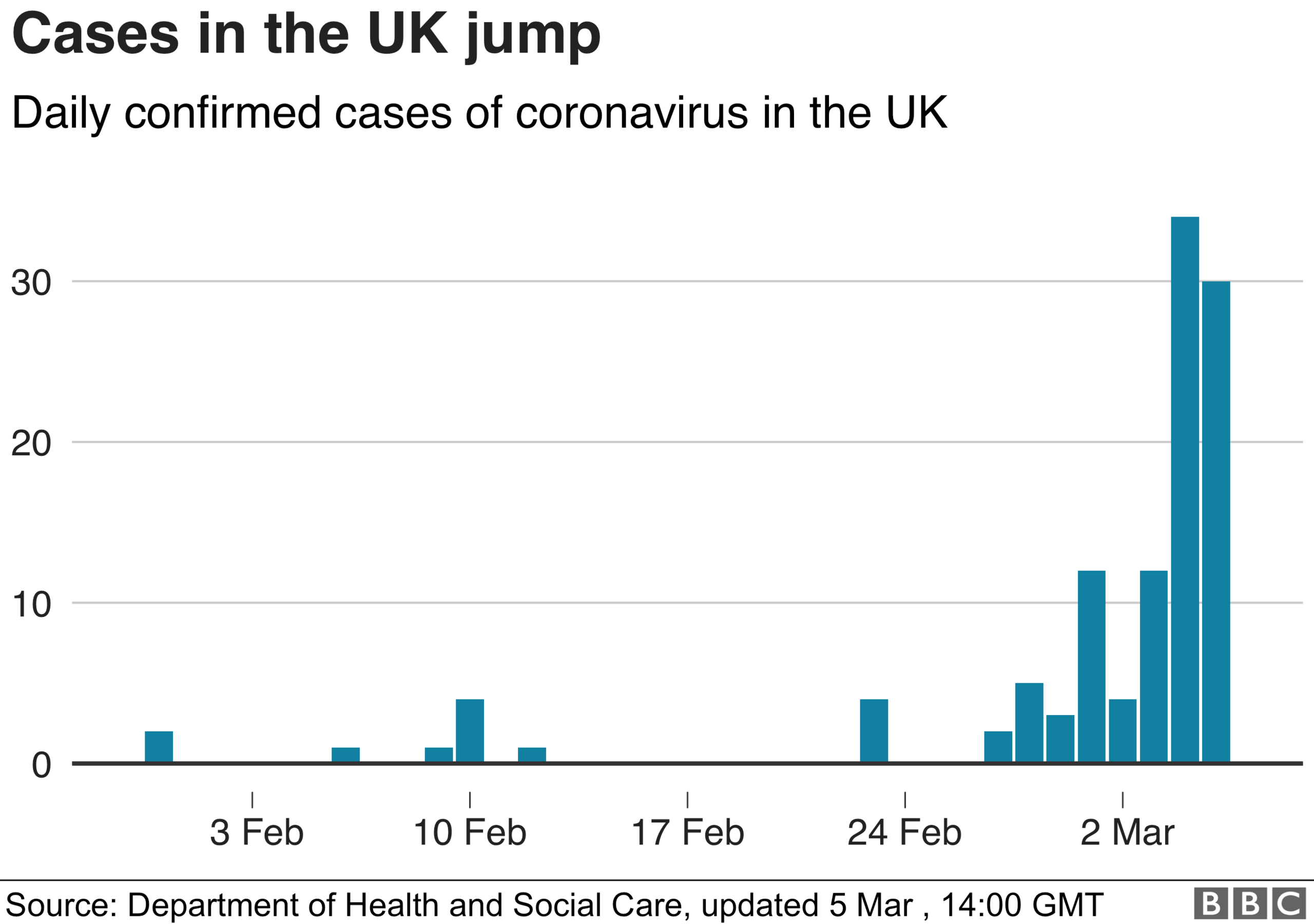
He told ITV's This Morning programme: "One of the theories is perhaps you could take it on the chin, take it all in one go and allow the disease to move through the population without really taking as many draconian measures. I think we need to strike a balance."
Mr Johnson said it would be "business as usual" for the "overwhelming majority" of people in the UK.
Prof Whitty also said there was "no need" for members of the public to stockpile food or medicine, adding that the outbreak would be a "marathon not a sprint".
"There is nothing in the current environment that would rationally lead someone to want to go out and stock up on stuff," he added.
The government has said it has a stockpile of important medicines and protective equipment, to counter any impact to global supply chains.

What do I need to know about the coronavirus?
LATEST: Live coverage of developments
EASY STEPS: What can I do?
GETTING READY: How prepared is the UK?
MAPS AND CHARTS: Visual guide to the outbreak
VIDEO: The 20-second hand wash

Prof Whitty said benefits of the delay phase included:
Pushing the peak of cases "further away from the winter pressures on the NHS" so that there was "more capacity to respond"
Buying time to allow the UK to improve its response or develop counter measures such as drugs, vaccines and diagnostics
There may be a seasonal element of the virus - so if the peak was delayed to spring or summer, the "natural rate" of transmission could be lower
Prof Whitty said the early stages of the delay phase were similar to the contain phase, and involved identifying cases of the virus, isolating patients, and tracing anyone who had been in contact with them.
"As time moves by, we then may start to move into the more socially determined actions... the kind of measures we can do to delay things which involve changes to society," he said.
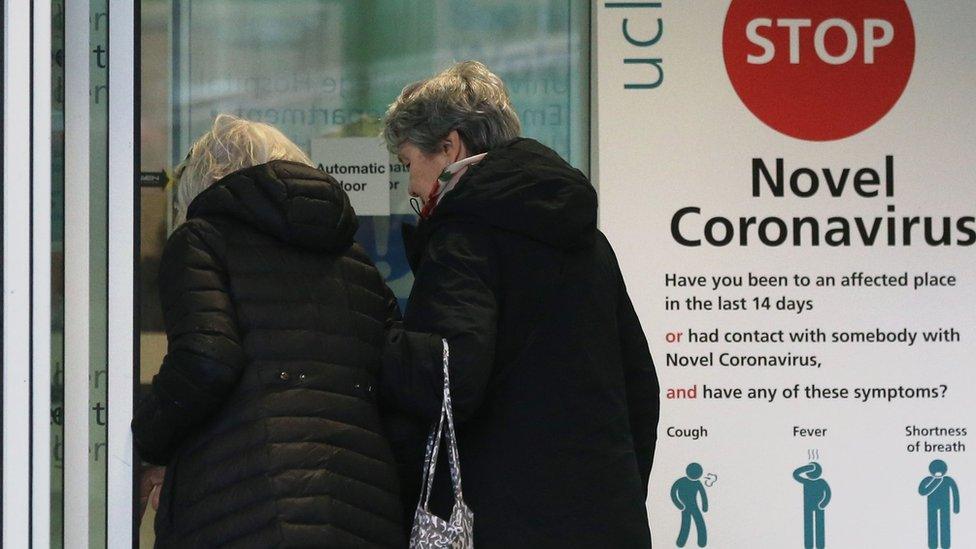
He said it was likely that later in the response, elderly people and those with pre-existing health conditions would be advised to "have some degree of isolation from more public environments" and may be told, for example, to "avoid crowded areas".
On Wednesday the highest day-on-day rise in cases in the UK was reported, when the number of cases jumped from 51 to 87.
The UK's early response to the virus, which causes Covid-19, was based on the spread being controlled in China, with some minor outbreaks in other countries, Prof Whitty said.
But he added: "The chances of that happening are now very slim. Slim to zero."
Prof Whitty said in the worst case scenario of an epidemic in the UK, critical care beds would be "under pressure at quite an early stage".

In other recent developments:
Bank HSBC says an employee at its Canary Wharf offices in London has been diagnosed and it is "deep-cleaning the floor where our colleague worked and shared areas of the building"
UK airline Flybe has gone into administration and says coronavirus is partly to blame
The competition watchdog has warned retailers and traders they could be prosecuted for trying to "exploit" the coronavirus outbreak by selling protective products at inflated prices
England's Six Nations games against Italy in Rome on 14 and 15 March are expected to be postponed - rather than taking place behind closed doors - as a response to the outbreak
Iran will close schools and universities until 20 March in an attempt to curb the spread
Switzerland has reported its first death from the virus - a 74-year-old woman who died in hospital in Lausanne
California has declared a state of emergency after announcing its first coronavirus death, bringing the US death toll from the disease to 11
And the world's biggest dog show, Crufts, has begun in Birmingham, despite two major sponsors pulling out of the event amid fears over the virus
Elsewhere, the prime minister's official spokesman told a briefing in Westminster that the spread of the virus would cause "no change" to the end date of the Brexit transition period on 31 December.
About 90,000 people have been infected globally since the outbreak of coronavirus in Hubei province, China, in December, with cases in more than 50 countries and more than 3,000 deaths.
Last week, a British man who was infected on the Diamond Princess cruise ship quarantined in Japan became the first UK citizen to die from the virus.

How have you been affected by the virus? If you have had the virus or know someone who has and who is willing to share their experiences, please get in touch with us confidentially by email haveyoursay@bbc.co.uk, external.
Please include a contact number if you are willing to speak to a BBC journalist. You can also contact us in the following ways:
WhatsApp: +44 7756 165803
Tweet: @BBC_HaveYourSay, external
Send pictures/video to yourpics@bbc.co.uk, external
Please read our terms & conditions and privacy policy
- Published5 March 2020
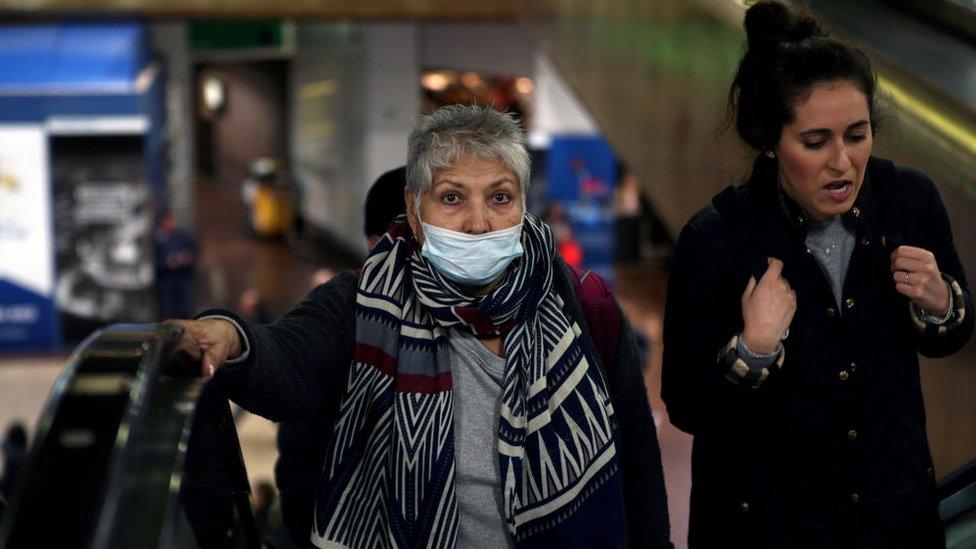
- Published5 March 2020

- Published5 March 2020
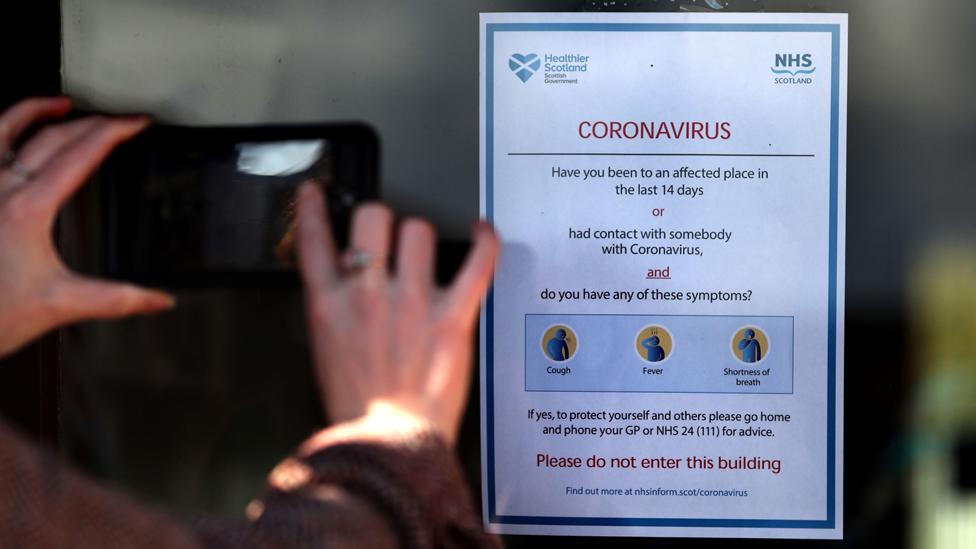
- Published4 March 2020

- Published1 March 2020
